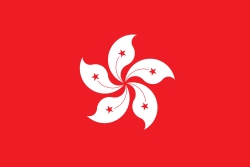| Hong Kong at the 2015 Summer Universiade | |
|---|---|
 | |
| IOC code | HKG |
| NOC | Sports Federation and Olympic Committee of Hong Kong |
| Website | http://www.hkolympic.org/ |
| in Gwangju, South Korea 3 – 14 July 2015 | |
| Competitors | 79 in 9 sports |
| Medals Ranked 50th |
|
| Summer Universiade appearances | |
Hong Kong participated at the 2015 Summer Universiade in Gwangju, South Korea.